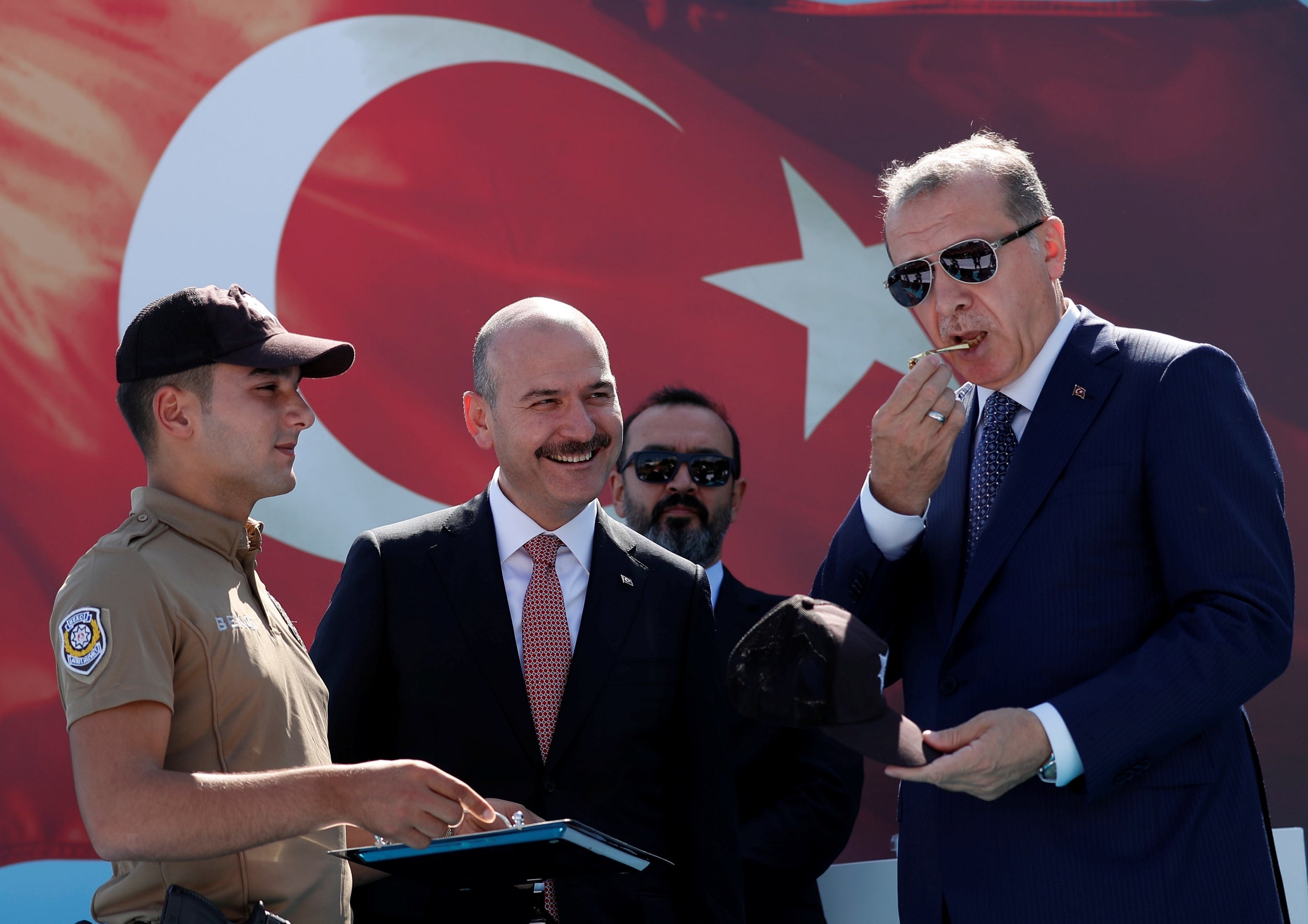Turkey’s Erdogan accused to trying to create ‘new militia’ after parliament votes to arm watchmen
Critics fear the 21,000-strong force will be full of party loyalists and could interfere in private life

Turkey’s parliament has passed a controversial law that would grant auxiliary police the authority to carry weapons and search suspects, in what critics fear could lead to the formation of a pro-government “militia”.
Opposition lawmakers are accusing the government of President Recep Tayyip Erdogan of seeking to create a parallel law enforcement branch potentially packed with loyalists.
The force, called bekci, or “watchmen”, has been used by Turkey to buttress police forces for decades. But it was disbanded and folded into the police force in 2008 before being resurrected in 2016.
“It has been a part of Turkish cities throughout history,” said Onur Erim, head of Dragoman Strategies, a political and defence consulting firm in Istanbul. “They were one of the guys in the neighbourhood. Unlike the police, they would never change locations.”
Many critics worry that the building up of the force is part of a broader effort by the government to expand the footprint of law enforcement at a time when police are coming under scrutiny worldwide in the wake of the George Floyd killing in the United States.
Dressed in bomber jackets that say bekci and uniforms that resemble those of law enforcement, they are widely mocked as ineffectual. The often tepid young men in baseball caps stroll the streets whilst occasionally asking drivers to turn down the volume on the hip-hop music blasting from their radios.
But some worry the force could play a more volatile role in rural communities that remain hotbeds of resentment between ethnic Turks and Kurds.
Independent critics have described the bekci as a youth jobs programme. It currently numbers at least 21,000 mostly men in the nation of 83 million.
The proposal to arm them was first introduced by Mr Erdogan’s Justice and Development Party (AKP) in January, but was approved late on Wednesday following a chaotic session of parliament in Ankara a day earlier in which lawmakers came to blows.
Under the new law, bekci can carry weapons, ask citizens for identification, conduct body searches, pull over cars, hold suspects and transport them to law enforcement. Critics say giving them law enforcement authorities is unconstitutional, and fear the recruits, who are often given little more than 60 days training, will abuse their power.
“The main opposition to it is that there is a worry that a group of people in government want to create a police state,” said Mr Erim. “The second thing is that the bekci are given all these rights like the police but are not as well trained.”
Video posted in February purported to show watchmen in Istanbul abusing a man declining to allow them to conduct a body search.

“An alternative law enforcement agency is being created,” main opposition Republican People’s Party (CHP) lawmaker Ibrahim Kaboglu was quoted as saying in a local newspaper.
“These authorities could be extended to interference in private life and moral policing,” CHP lawmaker Mahir Polat was quoted as saying in the opposition Cumhuriuyet newspaper.
“The watchmen could become the new militia force” of the AKP, he said.
There is little hard evidence about how and from which communities the watchmen are recruited. Turkey is ideologically and ethnically diverse, and friction often arises between leftist-leaning secularists and more traditionally minded conservative Muslims who support the AKP.
Turkey’s police, under the authority of pro-Erdogan interior minister Suleyman Soylu, is often accused by opposition of serving the political interests of the AKP.
“The watchmen have the duty to help people,” Mr Soylu said in February. “They have preventive and protective duties and authorities.”
Mr Soylu claimed last year that the watchmen had contributed to a 26 per cent decline in burglaries.
The AKP and its allies sought to change the law after two courts ruled that the watchmen did not have the authority to stop citizens.
Join our commenting forum
Join thought-provoking conversations, follow other Independent readers and see their replies
Comments